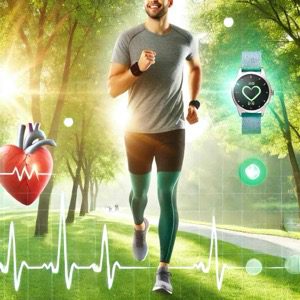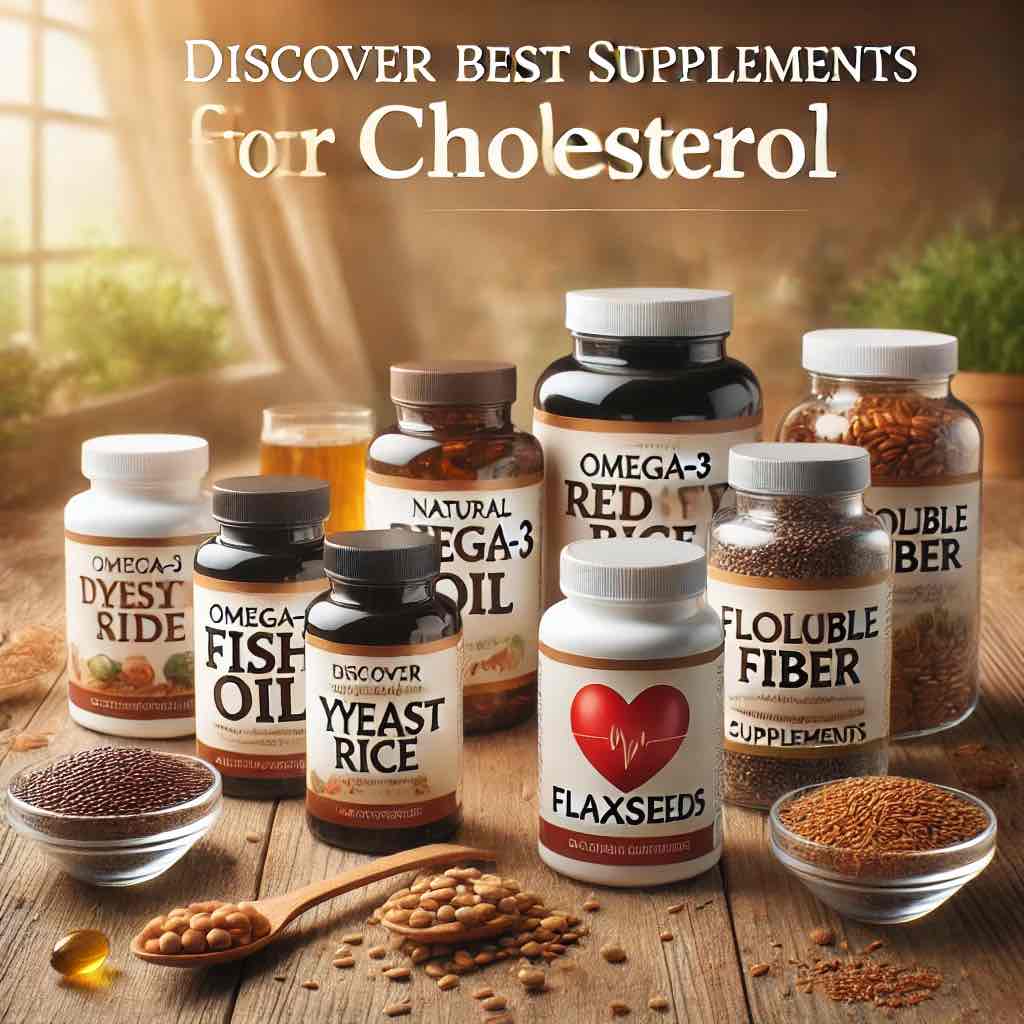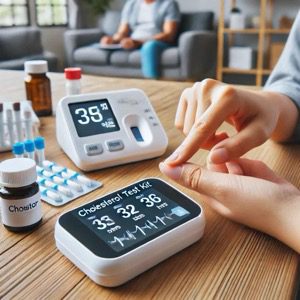Imagine this: You’re at your doctor’s office for a routine check-up. You feel fine—no pain, no discomfort. Then the doctor looks at your report and says, “Your cholesterol is high.”
Wait… what?
You don’t feel any different. You eat reasonably well. So why is this an issue?
The truth is, high cholesterol doesn’t knock on your door with symptoms. It works in silence, slowly building up in your arteries until one day—it’s too late. Heart disease. Stroke. A sudden health scare that could have been prevented.
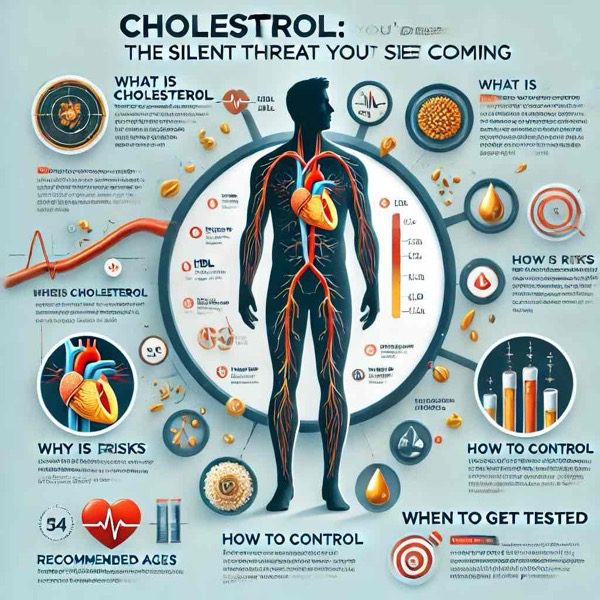
(Below is the list of various diseases caused by high cholesterol in body:
- Dyslipidemias– read more.. or Lipid Metabolism disorder
- End stage liver Disease– read more…
- Ischemia– read more…
- Cerebrovascular Disorders: read more..
- Atherosclerosis: read more..
- Cerebral Small Vessel Diseases– read more..
- Cholesterol Ester Storage Disease– read more..
- Abetalipoproteinemia– read more..
- Arterial Occlusive Diseases– read more..
- Niemann-Pick Disease– read more..
- Xanthomatosis– read more.. and so on, read more )
The good news is: You have the power to take control everything, starting today.
This below guide isn’t just about numbers and medical jargon. It’s about understanding what cholesterol really is, why it matters, and how you can naturally keep it in check.
So let’s get educated-
What is Cholesterol and Why Should You Care?
Cholesterol is like a handyman in your body—it helps build cells, produce hormones, and even digest food. Your liver makes most of the cholesterol you need, but some of it comes from food.
Sounds pretty useful, right?
The problem starts when cholesterol levels go out of balance. Think of it like oil in a car engine—too little, and the engine won’t work; too much, and it can clog up and cause a breakdown.
The “breakdown” in your body? Blocked arteries, heart disease, or even a stroke.
The Two Faces of Cholesterol: Friend or Foe?
Not all cholesterol is bad. In fact, there are three (03) main types:
1. LDL (Low-Density Lipoprotein) – The “Bad Guy”
LDL is like a lazy worker who dumps excess cholesterol into your arteries instead of getting rid of it. Over time, this builds up and forms plaque—a sticky substance that narrows blood vessels and increases the risk of heart problems.
2. HDL (High-Density Lipoprotein) – The “Good Guy”
HDL is the cleaner—it picks up excess cholesterol and takes it back to the liver, where it’s processed and removed from your body. The more HDL you have, the better!
3. VLDL (Very Low-Density Lipoprotein) – The Trouble Maker
VLDL carries triglycerides, another type of fat. High levels of VLDL can mean trouble, as they contribute to plaque buildup.
How Do You Know If Your Cholesterol is High?
Here’s the tricky part—high cholesterol has no symptoms. You could feel perfectly fine and still have dangerously high levels.
The only way to know for sure? A blood test called a lipid profile.
🔹 Cholesterol Testing & Diagnosis
• Lipid Profile Test → Read More
• LDL & HDL Tests → Read More
• Fasting vs. Non-Fasting Cholesterol Test → Read More
• At-Home Cholesterol Test Kits → Read More
Understanding Your Lipid Profile Test
| Cholesterol Type | Healthy Range |
| Total Cholesterol | Less than 200 mg/dL |
| LDL (“Bad”) Cholesterol. | Less than 100 mg/dL |
| HDL (“Good”) Cholesterol. | More than 60 mg/dL |
| Triglycerides. | Less than 150 mg/dL |
If your LDL is high and your HDL is low, your heart is at risk.
Why is Your Cholesterol High?
Cholesterol levels don’t spike overnight. They build up slowly, influenced by lifestyle, diet, genetics, and health conditions.
1. Your Diet Choices Matter
Picture your arteries as highways. Foods like fried chicken, pastries, and red meat act like traffic jams, slowing down the flow of blood. On the other hand, foods like nuts, fish, and vegetables are like traffic controllers, keeping everything smooth.
2. Lack of Exercise
When you don’t move enough, your HDL (good cholesterol) stays low, while LDL (bad cholesterol) starts to build up. Even a 30-minute walk daily can make a big difference.
3. Your Family History Plays a Role
If your parents or grandparents had high cholesterol, you might be at risk too. Some people have a genetic condition called familial hypercholesterolemia, which causes dangerously high cholesterol levels from a young age.
4. Other Health Conditions
Diabetes, thyroid problems, and obesity can disrupt cholesterol balance. If you have any of these, regular cholesterol monitoring is essential.
How to Lower Cholesterol Naturally
The good news? You can take action today to lower your cholesterol without medication.
1. Eat Heart-Healthy Foods
Your diet is your strongest weapon. Try this simple rule:
✅ More fiber, less fried food.
✅ More healthy fats, less sugar.
Foods that help lower cholesterol naturally:
• Oats and whole grains – Act like a sponge, absorbing bad cholesterol.
• Nuts (almonds, walnuts) – Rich in healthy fats that raise HDL.
• Fatty fish (salmon, tuna) – Full of omega-3, which reduces triglycerides.
• Fruits and vegetables – Packed with antioxidants that protect your heart.
Foods to avoid:
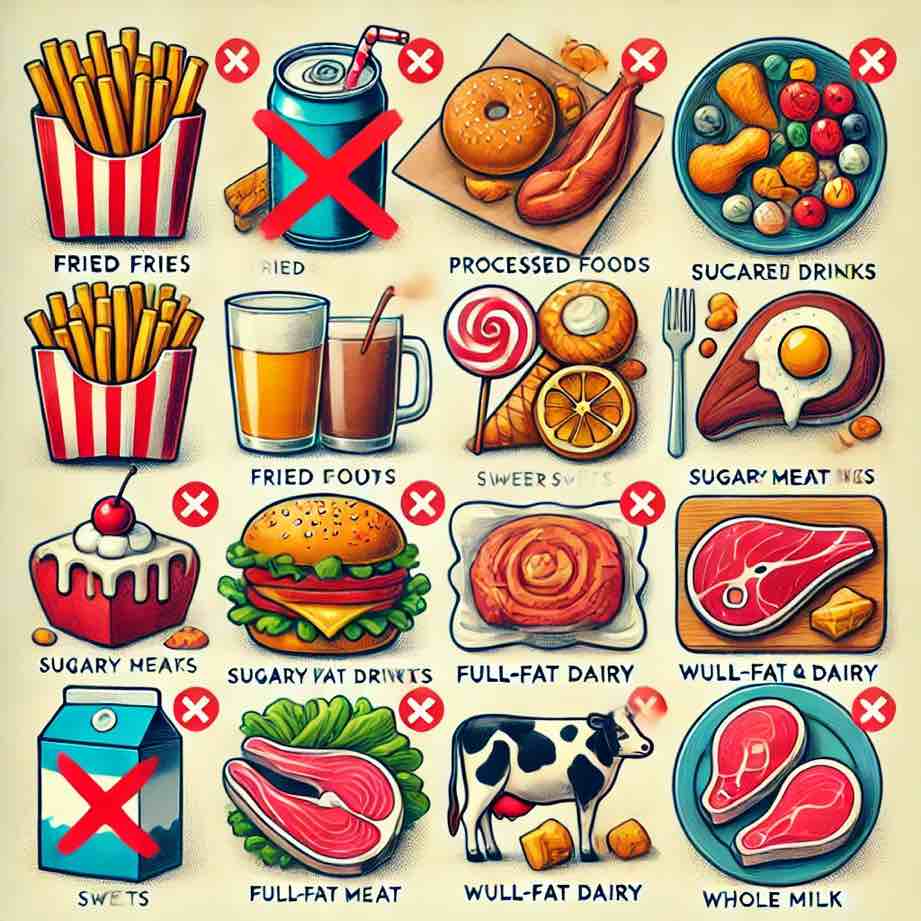
❌ Fried and processed foods
❌ Sugary drinks and sweets
❌ Red meat and full-fat dairy
2. Get Moving
Exercise is like a natural medicine for your cholesterol. It:
• Raises HDL (good cholesterol)
• Lowers LDL (bad cholesterol)
• Burns excess fat
Even brisk walking, swimming, or dancing can make a difference.
3. Maintain a Healthy Weight
Losing just 5-10% of your body weight can improve cholesterol levels significantly.
4. Manage Stress and Sleep
Chronic stress and poor sleep can raise cortisol levels, leading to higher cholesterol. Try:
• Meditation or deep breathing
• Getting 7-8 hours of sleep per night
5. Try Natural Supplements
Some supplements may help control cholesterol:
• Red yeast rice – Works like a natural statin.
• Phytosterols – Found in plants, they block cholesterol absorption.
• Omega-3 fatty acids – Reduce triglycerides.
Extras:
🔹 How to Reduce Cholesterol Naturally?
• Best Diet for Lowering Cholesterol → Read More
• Best Supplements for High Cholesterol → Read More
• Why Exercise & Weight Loss for Cholesterol → Read More
When is Medication Needed?
If your cholesterol levels remain high despite lifestyle changes, your doctor may recommend statins or other cholesterol-lowering drugs.
But here’s the thing—medications work best when combined with a healthy lifestyle.
Cholesterol and Heart Disease: The Connection
If cholesterol isn’t controlled, it can lead to atherosclerosis—a condition where plaque builds up in arteries, restricting blood flow. This can result in:
• Heart attacks – If blood supply to the heart is blocked.
• Stroke – If blood flow to the brain is reduced.
• Peripheral artery disease (PAD) – If circulation is affected in the limbs.
The sooner you act, the lower your risk.
Final Thoughts: Take Control of Your Cholesterol Today
Cholesterol is not your enemy, but it needs to be managed wisely.
Here’s what you can do starting today:
✅ Get a lipid profile test to check your levels.
✅ Switch to a cholesterol-friendly diet.
✅ Get at least 30 minutes of exercise daily.
✅ Maintain a healthy weight and manage stress.
✅ Consider natural supplements if needed.
Your heart deserves the best care—start now, and your future self will thank you!
Frequently Asked Questions (FAQs)
❓ Can cholesterol be lowered without medication?
Yes! Many people successfully lower their cholesterol through diet, exercise, and lifestyle changes.
❓ How often should I check my cholesterol?
If you’re healthy, every 4-6 years. If you have risk factors, once a year or as advised by your doctor.
❓ Are eggs bad for cholesterol?
Eggs contain cholesterol but don’t significantly affect blood cholesterol for most people. Moderation is key.
❓ Can stress increase cholesterol?
Yes! Chronic stress raises cortisol, which can lead to higher cholesterol levels.
By making small changes today, you can protect your heart, feel better, and live longer. Start now, and take control of your health!
Sources & Acknowledgments
This article is based on data from reputable sources, including:
- ClinicalTrials.gov – Providing the latest clinical trial information.
- OpenFDA – Offering reliable drug and medical device data.
We ensure all information is accurate, up-to-date, and aligned with expert-reviewed medical sources. Always consult a healthcare professional for medical advice.
Exercise and Weight Loss for Cholesterol: The Ultimate Guide to a Healthier Heart
Managing cholesterol isn’t just about diet—exercise and weight loss play a vital role in keeping your cholesterol levels in check. If you’re wondering how to…
Best Supplements for High Cholesterol: Natural Ways to Support Heart Health
Maintaining healthy cholesterol levels is essential for heart health. While diet and exercise play crucial roles, supplements can also provide effective support. Whether you’re looking…
Best Diet for Lowering Cholesterol: The Ultimate Guide to Heart-Healthy Eating
Cholesterol is essential for the body, but an imbalance can lead to serious health risks. If you’re struggling with high cholesterol or looking to maintain…
At-Home Cholesterol Test Kits: Are They Accurate & Worth It?
Can You Really Check Your Cholesterol at Home? Imagine testing your cholesterol levels without stepping into a lab. No appointments, no long waits—just a quick test in…
